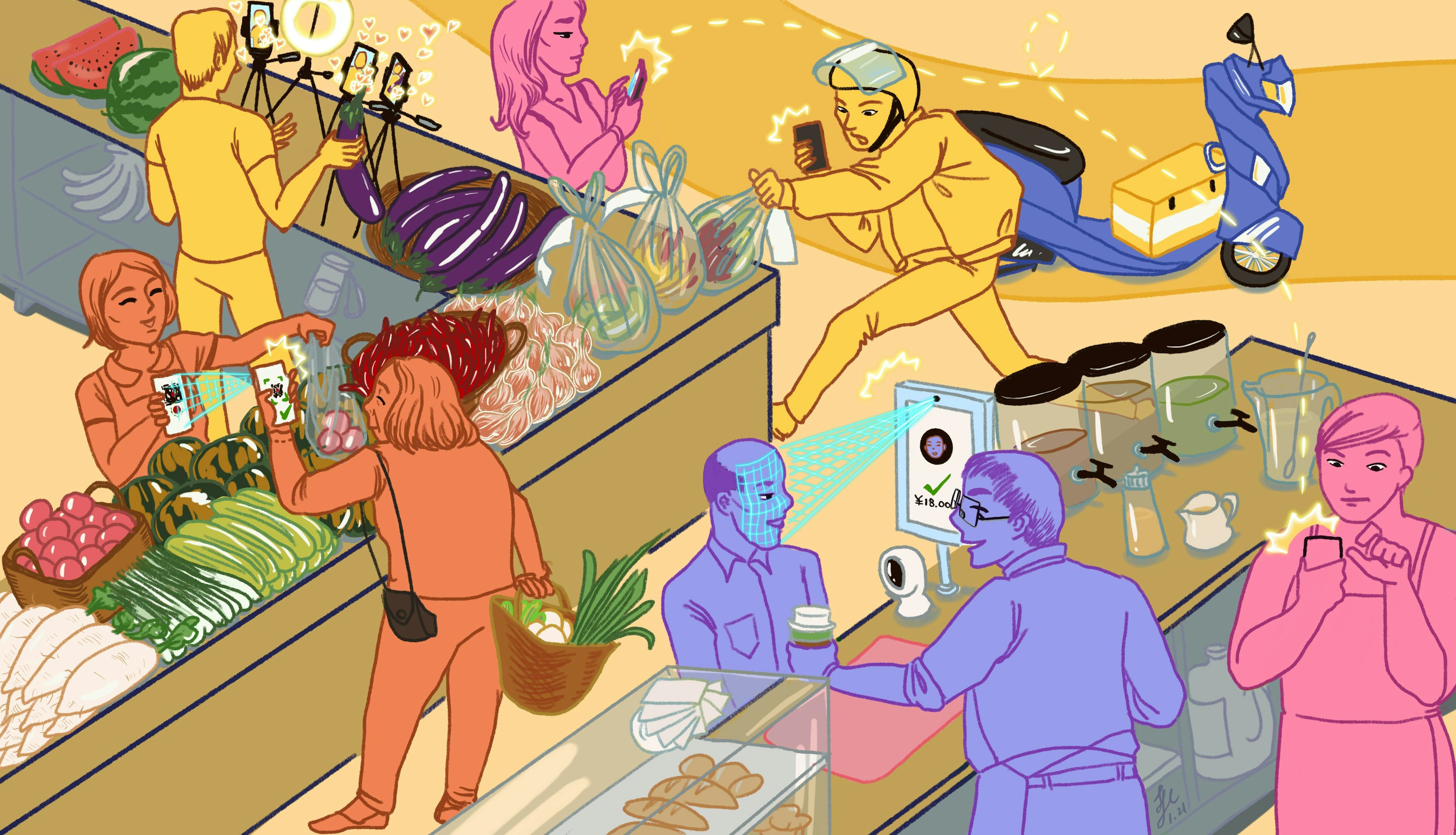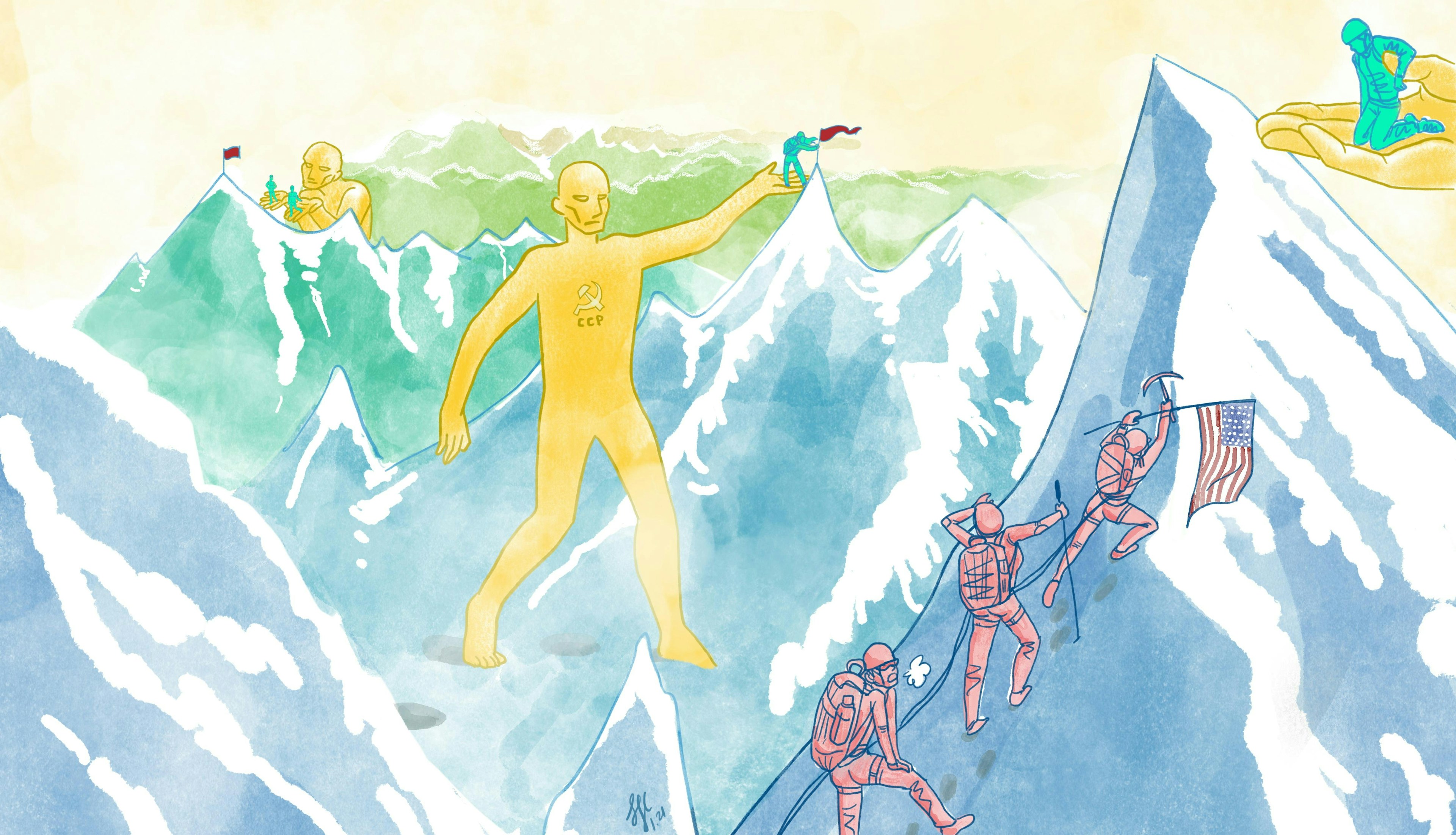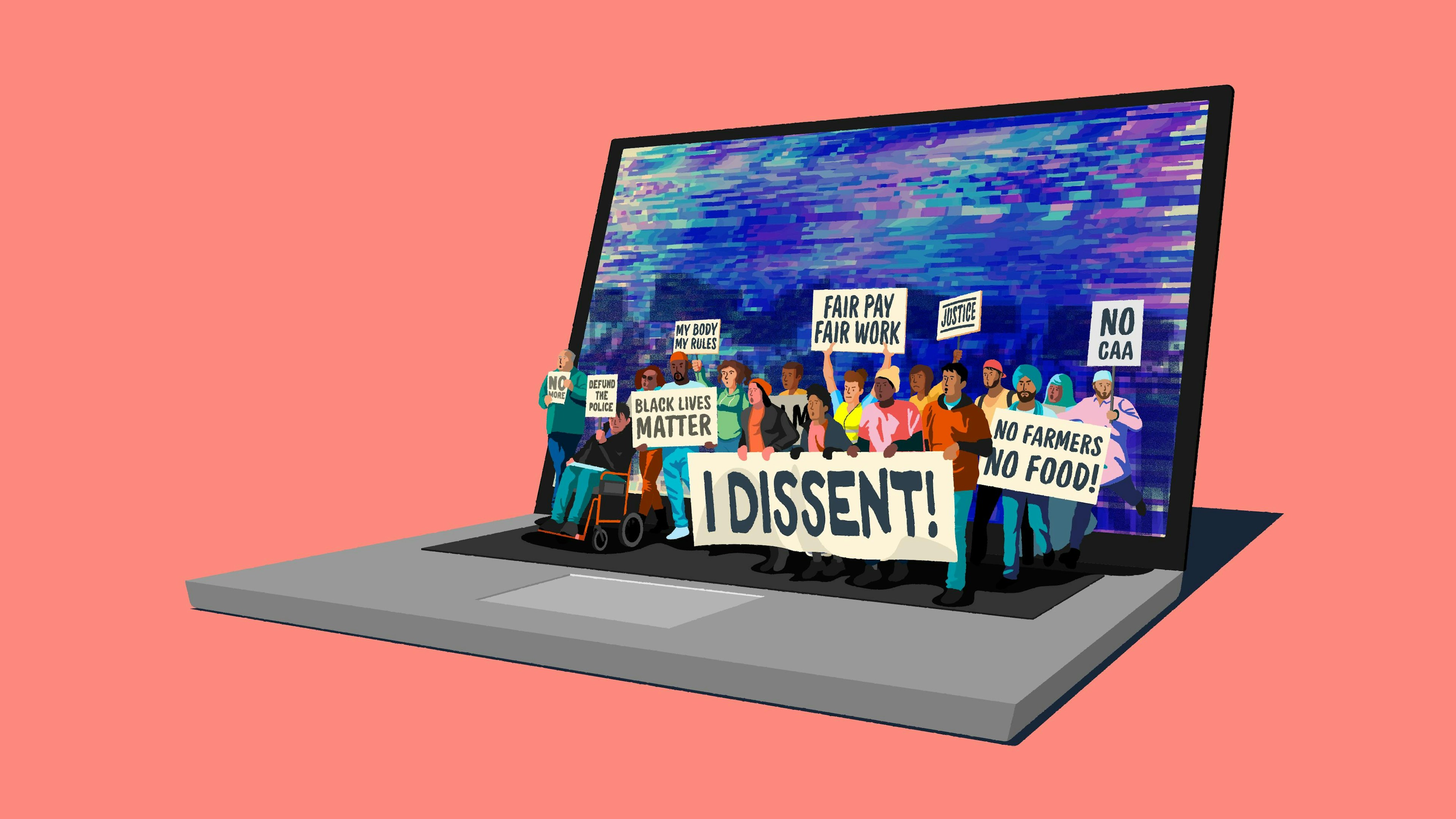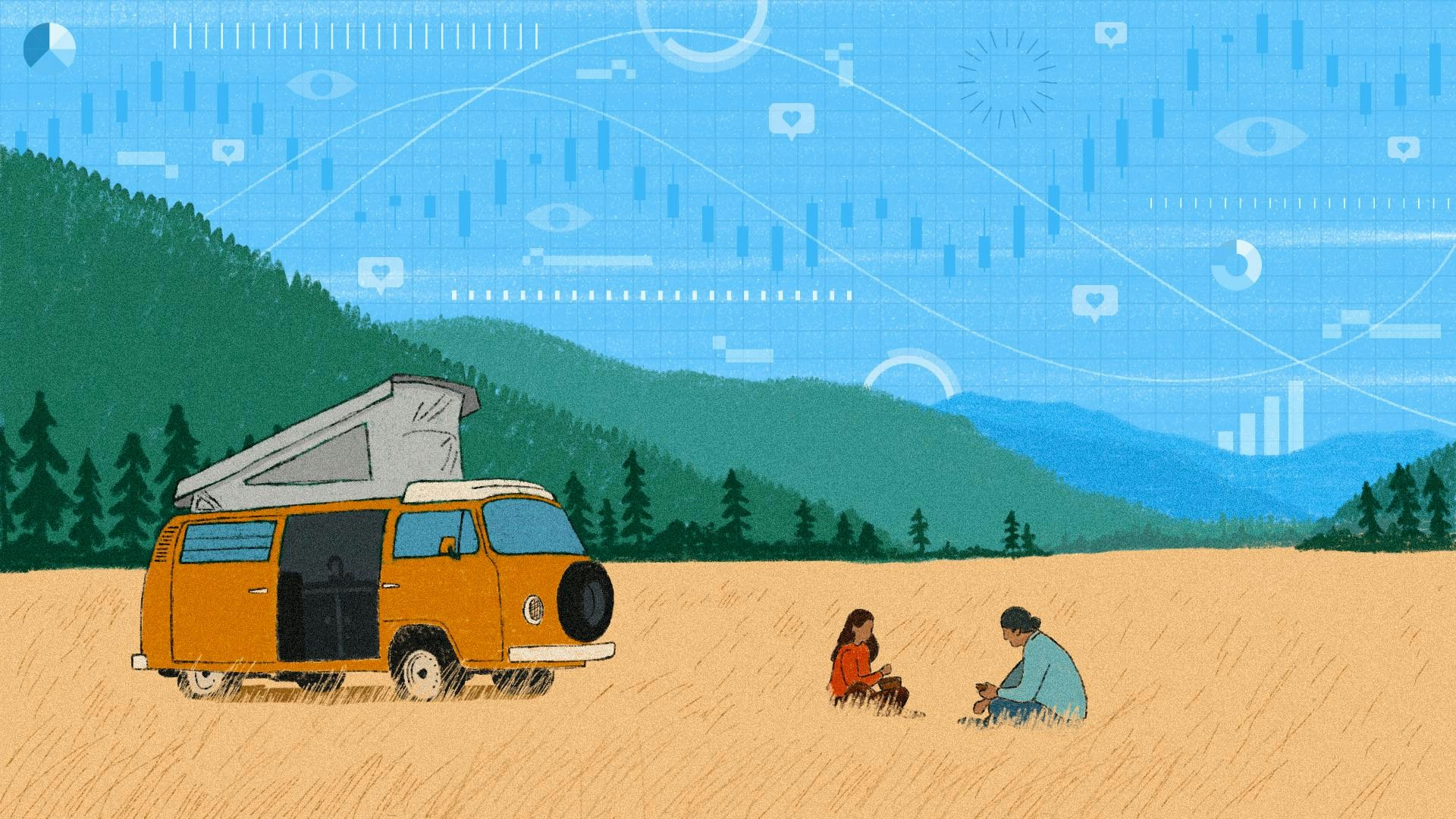History, politics, relentless adaptation: China’s innovation strategy

People define an economy. That does not change when the economy goes online, and ordinary people shape China’s rapidly-expanding digital economy in ways that suit their lifestyles and locations.
Urbanites—from Beijing, an ancient capital city, and one of China’s most surveilled; to Shenzhen, a newly-created “smart city” founded with advanced AI ambitions—contend with different socio-technical benefits and controls. In the countryside, rural farmers start e-commerce businesses, catering to viewers who discover products in monetised livestreams—which employ locals and stimulate village economies. Despite significant regional distinctions, China's people are exploring the boundaries of our physical and virtual economies.
Outsiders, meanwhile, gaze at China’s economic gains with fear-laced bias. It is characterised as an indecipherable but sinister Communist powerhouse, with international influence and transactional dominance that rivals the United States, a challenge to the liberal postwar order. China’s competitive status in the global economy creates a phenomenon that modern geopolitical calculations failed for decades to adequately appreciate: an economically flourishing authoritarian state. Advances in its digital economy, whose fortitude ensures future national wealth, are misunderstood—and sometimes entirely ignored.
A 2017 McKinsey report noted that that foreign observers underplay the Chinese economy’s digital dominance, especially in digital innovation and e-commerce, where its impact looms large: “The strength of China’s digital consumers goes beyond the advantages of scale... their enthusiasm supports growth in the market now and will do so into the future, facilitates rapid adoption of innovation, and makes Chinese digital players and their business models competitive.”
China’s digital economy encompasses an almost dizzying breadth of activities—from dumpling transactions conducted via WeChat pay or Alipay, to the activities of seemingly omnipotent, state-supported e-commerce giants like JD and Alibaba. But a purely economic analysis of the People’s Republic of China is insufficient to describe why its people are so adept at changing consumer behaviours, livelihoods, and even personal and professional expectations, in response to the digital economy—arguably the second major technological and economic leapfrog the nation has made in as many generations. (The first were the initial post-Mao economic reforms, “Opening and Reform” (改革开放, which opened the country to foreign trade and investment.) China is an interdisciplinary field. Its economy cannot be parsed from its history, politics, and society, all of which exist in the minds and memories of China's citizens, beyond the corridors of the Chinese Communist Party (CCP)’s base in Zhongnanhai.
In Has China Won?: The Chinese Challenge to American Primacy, former Singaporean diplomat Kishore Mahbubani argues that when Westerners consider the CCP, they focus too much on “Communist” and too little on “Chinese.” This results in an instinctive dismissal. While “Communist” conjures the image of a repressive regime, “Chinese” is a complicated term that encompasses culture and history—elements too messy to neatly adhere to the one-note narrative of “Communist China.” Journalist David Wertime critiqued a 2020 State Department-affiliated think tank report for portraying China as a monolith. “Even a dictatorship,” he wrote, must account for a variety of conflicting public opinions in order to succeed.
It goes without saying that China’s non-adherence to liberal democratic systems make other power structures uncomfortable. But the country has its own metrics of self-evaluation, implemented by leaders long before the US was an idea, let alone a nation. What powers them is as much personal as political.
To understand its current digital economy, it’s crucial to understand that.
History in the (constant) making
History in China is routinely edited. Individuals’ sense of the society they inherited, and their roles in it, change accordingly. Multiple iterations of aggressive societal change and political instability prepared generations of Chinese for the abrupt adjustments that technological disruption levied onto modern life. Before virtual economies were a twinkle in the pixellated world, the nation spent the twentieth century perfecting the art of early adoption... though the product was a socio-political status quo, not a new iPhone.
Historical narratives shape life in the PRC. The story China tells itself about the last century is foundational to its contemporary identity and subject to perpetual evolution; as one Chinese scholar aptly noted, “In the West, history never changes and the future is uncertain. But in Marxism, the future is certain and history is always changing.” This ideology is embodied by its patriotic education campaign and propaganda apparatus. A crude version of the story they tell follows thus: After 5.000 years of dynastic civilisation, leading to a hundred years of humiliation at the hands of foreign invaders (ending when Mao took the reins in 1949), China entered the twenty-first century as an underdog.
“The Chinese people don’t compare their condition with that of other societies. Instead, they compare their lot with what they experienced in the past,” Mahbubani writes. Chinese leaders’ political philosophies rely on history and identity to manage and cultivate nationalism.
The demise of China’s imperial rule in 1911 was followed by the imported, well-intentioned modernism of Sun Yat-sen. But governing proved difficult in a divided nation. Warlords found opportunities for power, and one, Yuan Shikai, claimed to be president. After his ouster, Chiang Kai-shek inherited Sun’s mission and led the Nationalist government through Japanese invasion, the Second World War, and civil war with the Communists. Mao Zedong took over and declared the dawn of New China in 1949.
Anyone who was in that audience on Tiananmen Square has already witnessed the scattered dawns of many new Chinas. But the Mao years imposed politics on people to an unprecedented degree. Mass mobilisation was the Chairman’s preferred method for governing and stoking chaos; his means of distinguishing between the two was perhaps known only to him. As a regular person, you had to be willing to wholeheartedly cheer a slogan one day and enthusiastically pronounce its opposite the next.
"A revolution is not a dinner party, or writing an essay, or painting a picture, or doing embroidery," Mao Zedong wrote in his 1927 "Report on an Investigation of the Peasant Movement in Hunan." "It cannot be so refined, so leisurely and gentle, so temperate, kind, courteous, restrained and magnanimous. A revolution is an insurrection, an act of violence by which one class overthrows another."
And indeed, revolution under Mao was not a dinner party. Dinner parties have too logical a progression and too clear an end.
Modern politics wed identity to economic ambition
When Xi Jinping came to power in 2013, he shifted course, from the unadulterated pursuit of economic development and domestic stability, to bigger goals: “national rejuvenation,” and China’s reinstatement as a global superpower. Xi understood that becoming a modern superpower requires massive, creative investment in the domestic economy.
Under Xi, the digital economy and its industrial and innovative offshoots were aggressively prioritised. China’s economic development swiftly shifted from playing catch-up to playing coach. But, like a dinner party, an economy only exists if people show up: Xi could have spent the last seven years talking about technological advancement as much as he liked, but it wouldn’t have mattered if China's population of 1,4 billion maintained an aversion to cell phones or, worse, WeChat.
In China, popular participation in the development of the virtual economy is not limited to data science majors who take jobs at Alibaba (an equivalent to Amazon) or Weibo (a social network much like Twitter). Expanding its online economy required coders, yes, but also non-coding citizens to adapt to tech en masse. Xi reminds his audience, composed of subscribers to the official Party journal Qiushi ("seeking truth"), that the “real economy is the foundation”; manufacturing and agriculture cannot be abandoned in the name of digitisation. He recognises the importance of fulfilling domestic obligations, but argues explicitly for making foreign countries reliant on China’s logistics networks and supply chains, through the Belt and Road Initiative, the digital silk road, and other foreign investments.
Xi Jinping’s speeches about the economy are equally specific and aspirational; ideology and innovation are baked into the CCP’s economic development plans.

Mind the thin air
Enforced cohesion fuels market diversity
In a recent speech, Xi Jinping characterised China’s digital economy as “world-leading” and argued that, in the post-COVID world, the country “must take advantage of this favourable momentum, accelerate construction of the digital economy, digital society and digital government, promote digitalisation-based optimisation and upgrading in all fields.”
Jumping into risky ventures is less scary when they are supported by the powerful apparatus of the CCP, and touted by its leader. Galvanising people to innovate across class levels had an insulating effect on the population’s ability to adapt to the unexpected. As Zhang Jun, Dean of Fudan University’s School of Economics, put it recently, unemployment during the Covid-19 crisis did not significantly rise in China because of “the increased labor-market flexibility brought about by digitalisation.”
China's digital economy is driven by a relentless adaptability that concerns itself primarily with efficiency and mutually beneficial outcomes for vendors, distributors and customers. The end of the domino effect is found in the daily lives of the Chinese people; together, they define the nation which will shape the future of the global economy—the impact of which Americans cannot escape, despite the US administration’s pursuit of an isolationist agenda over the last four years. As many experts asserted, the United States’ most effective strategy in competing with China isn’t a trade war; it is bolstering economic opportunities at home. Barring that, China’s state-led capitalism may provide more opportunities for economic innovation than America’s current system, which seemingly abandons people in the name of exceptionalism.
Industrial revolutions are not defined by sudden solutions that enrich the masses overnight. Instead, their effects are diffuse. The world’s ongoing digitisation is no different. While some advancements can be traced to individual authors, their ability to transform societies hinge on human behaviour: willingness to adapt, and the ability to adapt creatively.
How does Xi’s vision—not only for China’s digital economy, but also for interlinked forms of digital governance—affect people on the ground? What doors does it open, and whose does it shut? How does someone living in rural China invite herself to new industries? How does the government’s stance toward personal data inform which employment possibilities are available to a generation? And what moral considerations accompany unchecked innovation?
We shall explore these questions in the months to come through a deeper dive into various aspects of China’s virtual economy.
18 Feb 2021
-
Johanna Costigan
Illustrations by Frankie Huang.
DATA-DRIVEN TECH & SOCIAL TRENDS. DISCOVERED WEEKLY. DELIVERED TO YOUR INBOX.
02/03
Related Insights
03/03
L’Atelier is a data intelligence company based in Paris.
We use advanced machine learning and generative AI to identify emerging technologies and analyse their impact on countries, companies, and capital.


